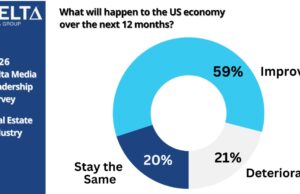Global sustainability benchmark now serves the full spectrum of real estate capital providers
Amsterdam – June 1, 2015 – (RealEstateRama) — GRESB, the leading global standard for portfolio-level sustainability assessments in real estate, released the 2015 GRESB Debt Survey on May 1. Serving real estate equity investors with ESG data since its launch in 2009, GRESB will now also assist institutional investors in real estate debt. The debt assessment will apply a standardized reporting framework, enabling investors to extend ESG integration to their real estate debt investments.
Institutional investors are engaging more and more with their debt investments and requesting that sustainability be integrated into lending practices. However, they recognize that the integration of ESG issues in real estate debt decision-making and associated business processes is still an emerging practice, and likely to be less evolved relative to real estate equity investing.
“Data is critical in making informed investment decisions and that data needs to be collected in a uniform manner. Townsend uses GRESB data to assess and monitor ESG activities across distinct client portfolios. Our ultimate objective is to encourage a wider participation in data collection to ensure consistency and depth of the database, to improve its integrity,” says Jennifer Young, Principal at The Townsend Group.
The GRESB Debt Survey has been specifically tailored to the functions and processes of real estate lenders and has been developed to capture both sustainability engagement and performance. In 2015, the first year of the GRESB Debt Survey, participation will be open to private real estate funds that identify their primary investment strategy as debt. Participating real estate debt funds will be an integral part of further evolving the assessment process, content and the future of sustainability integration within real estate debt.
In addition to governance issues related to fund management, policy and disclosure, the GRESB Debt Survey focuses on sustainability considerations at the collateral and borrower-level, the sustainability touch points for a real estate lender and the greatest channels for sustainability integration and impact in lending decision-making.
“Collectively, real estate lenders can have a major influence on the global environmental and social impact of the real estate sector. Through the extension of credit, lenders enable development, investment and borrower activity in a sector that consumes 40% of energy and contributes 30% of greenhouse gas emissions globally,” says Nils Kok, CEO of GRESB. “By capturing the ESG performance of real estate investors through the GRESB Survey, and lenders by way of the GRESB Debt Survey, GRESB now serves the full spectrum of real estate capital providers.”
For further information please contact Rumyana Hristova at GRESB tel. +31(0)207740220, email">
About GRESB
GRESB is an industry-driven organization committed to assessing the sustainability performance of real estate portfolios (public, private and direct) around the globe. More than 150 members, of which 47 are pension funds and their fiduciaries, jointly representing USD 8.9 trillion in assets under management, use the GRESB benchmark results throughout the investment management and engagement process, with a clear goal to optimize the risk/return profile of their real estate investments. For more information, visit www.gresb.com














